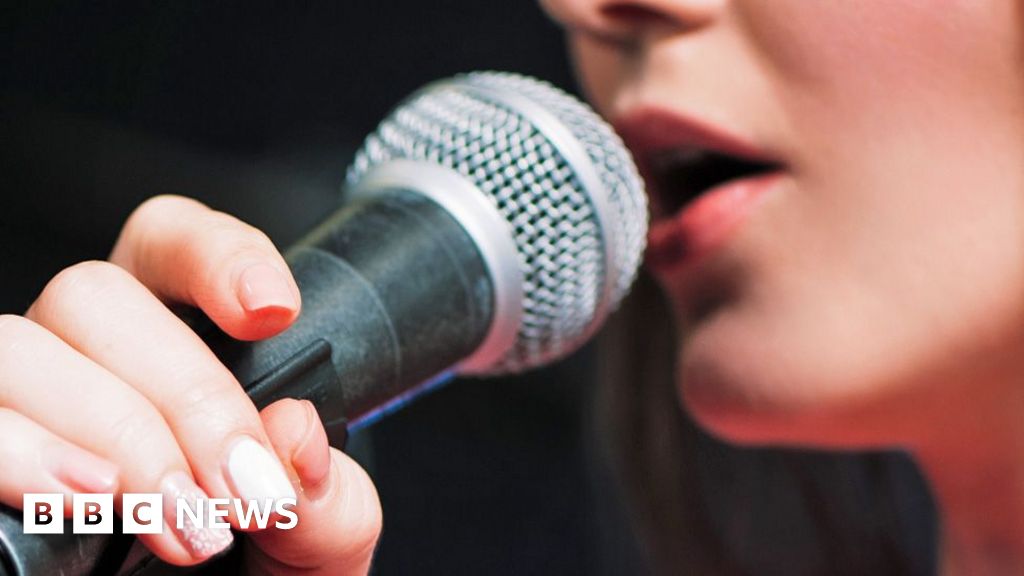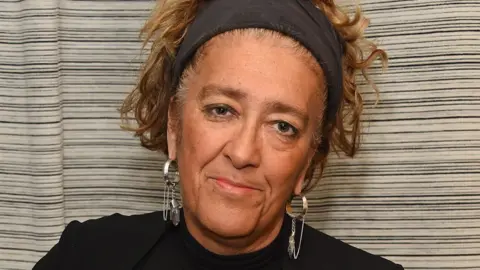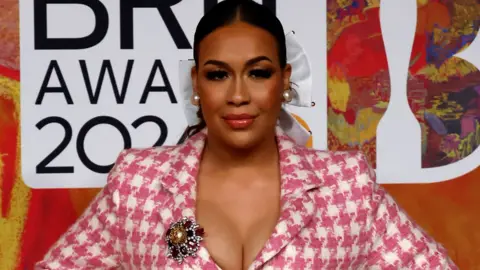Ciisa: Can new regulator clean up entertainment industry?

 Getty Images
Getty ImagesA new watchdog for standards of behaviour in TV, film, music and theatre aims to create “a much safer environment” for workers after years of revelations about abuse, bullying and harassment, its bosses have said.
People will be able to report complaints to the Creative Industries Independent Standards Authority (Ciisa) when it launches next year.
Founder Dame Heather Rabbatts said she was “delighted” with the response from broadcasters, producers and record labels after a call for funding, which was backed by stars like Keira Knightley and Cara Delevingne in June.
But there are questions over whether Ciisa will have sufficient powers or capacity to deal with the problems out there.
The new body has been in the pipeline for several years, since Dame Heather, who founded Time’s Up UK in 2018, saw that many victims of bullying and harassment had nowhere to turn for help.
It also followed campaigning for better regulation from former X Factor singer Rebecca Ferguson, who has said she has suffered exploitation and bullying in the music business.
 Getty Images
Getty ImagesAbuse has been rife in industries where bosses and stars hold huge power over young performers and workers who are desperate for careers in those fields, and over freelance staff with precarious livelihoods.
“It’s often powerful people taking advantage of quite vulnerable individuals who don’t have employment protection, and that means it [the creative industry] has certain characteristics that are different from other sectors,” said Dame Heather, who is Ciisa’s interim chair.
Interim chief executive Jen Smith said: “The phrase that we hear most from our colleagues across the creative sectors is, there’s a gap in provision for independent, confidential advice and support, and this is much needed.
“We’re a 70% freelance community. Often it’s unclear where you go [for help].”
It won’t just support those working behind the scenes. If it had been up and running, Ciisa could have helped deal with recent complaints from some celebrities about alleged bullying on BBC One’s Strictly Come Dancing, Smith said.
“I think that’s exactly the type of scenario where an independent body could really add value to the sector.”
 Getty Images
Getty ImagesCiisa’s launch can’t come too soon for some people.
Earlier this year, trade union Bectu published research suggesting that 92% of creative workers had witnessed or experienced workplace bullying or harassment; while one in five had suffered a serious sexual assault at work.
And the House of Commons Women and Equalities Committee published a report concluding that the music industry is still a “boys’ club” where sexual harassment and abuse are common, due to a “culture of silence”.
“The entertainment and creative industries have had issues with systemic misconduct and abuse for decades,” Alexa Morden, host of The 98% podcast, which discusses the realities of acting life, told BBC News.
“The hierarchical nature of the industry allows those in positions of influence to exploit individuals and abuse their power.”
Through the podcast, Morden has heard many stories that are “abhorrent – but sadly not that shocking any more”, she said.
Ciisa is “essential to finally implement proper safeguarding and regulation into this industry”, Morden believes.
But it will face challenges to overcome “the deeply ingrained culture of fear that permeates the entertainment industry” and to tackle “resistance from those who have built their success on the exploitation of others”, she added.
‘Time will tell’
Ciisa has just named leading lawyer Baroness Helena Kennedy KC its chair, to take over from Dame Heather.
When someone makes a complaint, the organisation will offer advice, dispute resolution, mediation and help take matters to police if appropriate. In some cases, it will launch its own investigations.
In advance of its launch, Ciisa is drawing up a set of standards for behaviour so it can judge whether someone has crossed the line.
But its powers will be limited. It is a voluntary regulator – it has backing from most major players in the industry and the government, but it won’t have powers to impose financial, disciplinary or criminal sanctions.
“We would signpost appropriately to the most relevant place in terms of accountability,” Smith said.
“But our language is about recommendations, about improvement, about proportionate accountability. That’s the tone and the language of Ciisa.”
The House of Commons Women and Equalities committee’s report welcomed Ciisa, but said it is “not a panacea for all of the problems in the industry” and “time will tell whether it has the powers required to drive the changes needed”.
And when it launches, the body is likely to discover the true scale of bad behaviour in the industry, only a fraction of which hits the headlines. It could be swamped.
“We’re a new entity. The reality is we’re modelling very carefully for all eventualities,” Smith said.
“But because we are new and unique, it’s difficult to ascertain the scale of what’s happening to people. That’s why the establishment of Ciisa is so important. We’re doing our due diligence incredibly carefully on set-up.
“We’re making sure all the technical foundations for our operating model and so on are absolutely sound so that we are prepared when we do start to bring on our services for what could be a large volume of reporting or issues brought to us or seeking advice, and we will make sure that we are prepared.”
Related
European leaders push defense spend amid uncertainty over Trump aid…
This week, the European Commission proposed measures for fiscal flexibility on defense spending and a plan to borrow 150 billion euros ($163 b
Europe rallies behind Zelensky as US announces new talks with…
EU leaders rallied around Ukraine and agreed to boost the bloc's defences at a crisis summit Thursday, as Washington said talks with Kyiv were back on track
European markets recoup most losses; Autos gain on tariff exemption
This was CNBC's live blog covering European markets. European markets ended around the flatline on Thursday after a choppy day of trading as i
Jesse Eisenberg Granted Polish Citizenship: ‘I Am Happy to Be…
Jesse Eisenberg has been granted Polish citizenship by the European country’s president, just months after the actor, writer and director applied.Eisenberg wa













